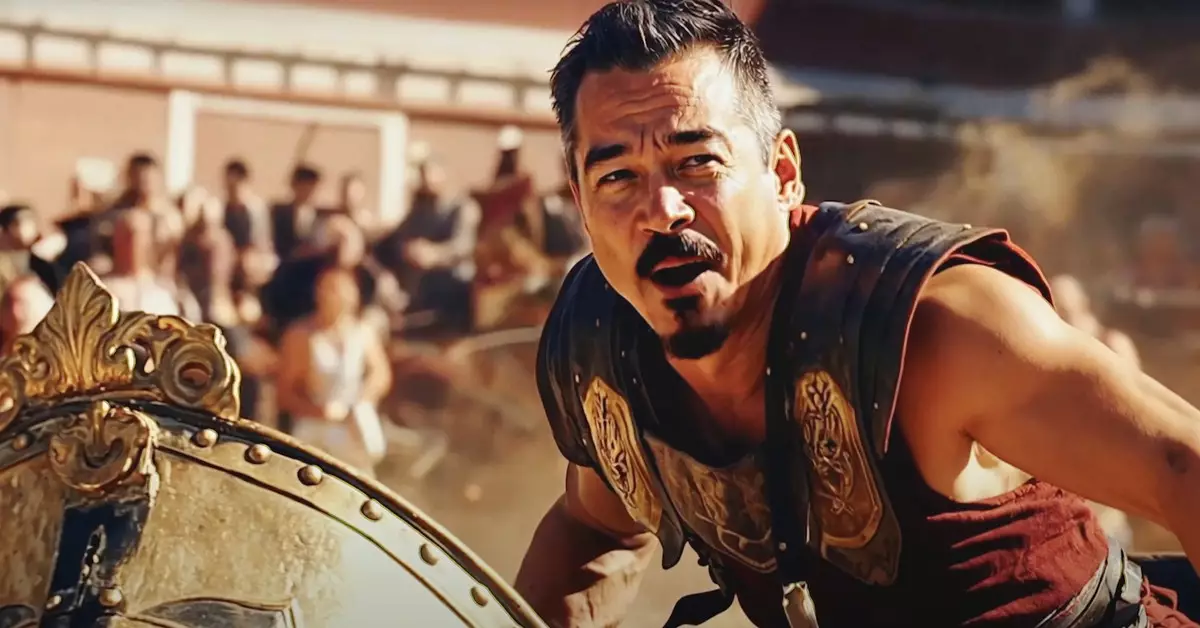In recent years, the utilization of artificial intelligence (AI) in creative fields has become an intriguing blend of innovation and confusion. Companies are experimenting with AI to cut costs and refine their processes, and TCL’s latest foray into AI-generated films is a prime example. While the tech is advancing rapidly, the output remains unsettlingly inhuman and frequently jarring. With five new AI-generated short films launched on its TCLtv Plus streaming platform, it’s worth taking a closer look at these projects, their storytelling failures, and the technology’s current limitations as experienced during TCL’s viewing.
When TCL initially teased its AI-generated short film “Next Stop Paris,” reactions ranged from intrigue to outright derision. Viewers were taken aback not only by the stilted animations—characters with stiff limbs and static faces—but also by bizarre narrative arcs that blurred the lines between coherent storytelling and disjointed chaos. My expectations were still low for the subsequent five films, given the backlash. While each new film appeared to iterate on the previous outcomes, improvements were marginal at best. Each story emphasized the stark disconnect between the animation and narrative, demonstrating that AI has yet to master human emotion and expression that traditional animators wield effortlessly.
For example, the opening film—purportedly a futuristic tale—pulls heavily from classics like Ray Bradbury’s “All Summer in a Day.” Though the premise of a young girl yearning to witness the sun on a desolate planet may seem compelling, the execution left much to be desired. The production lacking the fluidity of human movements rendered scenes unintelligible. Limiting characters to mere visual props without appropriate expressions removed any semblance of emotional connection, making it hard for viewers to engage with the plight of the protagonist. Such narratives often bring forth existential questions about empathy in AI storytelling—can a computer truly comprehend the feelings of solitude and imprisonment?
Another film, “Project Nexus,” serves as a cautionary tale of oversaturation in storytelling and the pitfalls of a non-linear narrative when employable frameworks become cluttered. The film introduces a protagonist with sudden supernatural powers after a radioactive rock explosion; however, this premise fizzles swiftly into an ending that screams “to be continued” without meaningful lifespan for the viewer. Titles like this often tease a world brimming with possibilities, only to squander it amidst haphazard pacing and lack of depth. If viewers are left bewildered by the incessant strange visuals and sub-par voice acting, what motivation remains to invest in subsequent installments?
The AI also curiously attempts its hand at docufiction in one of its films centered on Dr. Warren Brown’s harrowing tale of survival. While the concept may attract some interest, the inability of AI to temper realism with dramatic nuances erodes its potential poignance. The film oscillates between genuine human reflection and bizarre visual sequences—one minute we witness a man battling for survival, and the next we are treated to a surreal montage involving a zebra. This clash of tones dilutes the emotional gravity of real-life events, leaving many viewers feeling disoriented and frustrated.
Conversely, some short films take a turn into comedic territory. Films like “The Audition” attempt humorous commentary on the casting process, but instead venture into cringe-worthy absurdity. The film’s ambition to blend humor with AI elements risks falling flat when the humor fails to resonate with an audience devoid of human context. When an AI system limits character interactions and responses to predetermined patterns, what unfolds is less of a comedic skit and more of a bizarre reflection on humanity—one where the actors aren’t even human.
Then there’s “Metamorphosis,” an AI-generated depiction of a woman’s struggle with arthritis, leading her to transform into a slug. While it’s certainly imaginative, it borders on macabre and absurd. It attempts to convey tragic storytelling, yet the disturbingly literal metamorphosis lacks subtlety and nuance. By the time viewers reach the climax, many are left bewildered and disturbed, unlike the impactful emotional experience one would expect from a traditional narrative.
As with many technological advancements, the lessons learned from TCL’s AI experiments highlight the limitations of current technologies rather than their promise. While each film showcased an imaginative premise, they fell short in narrative coherence, emotional engagement, and overall execution. The end result is a collection of films that—as experimental endeavors—provokes deep discussion, yet often frustrates. Perhaps the road ahead demands not merely more advanced algorithms, but also a collaborative fusion of human insight into the creative process, ensuring that technology complements rather than reduces our storytelling artistry. Until then, the balance between art and technology may persist in the awkward uncanny valley we’ve seen within these short films.


Leave a Reply